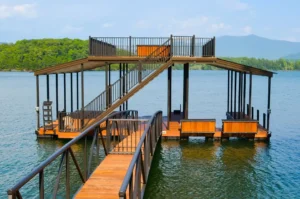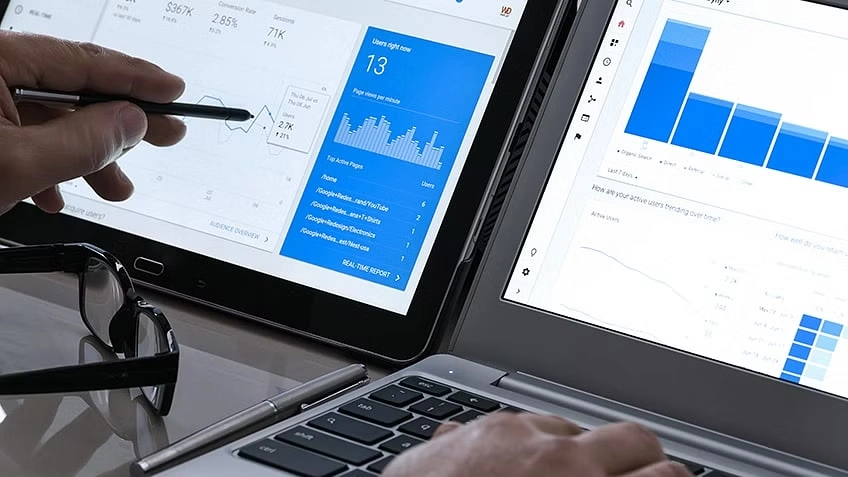The longevity and sturdiness of boat docks have been completely transformed thanks to technological advancements in the field. The role of technology in maintaining durable boat docks is a topic that deserves attention. In this article, we will explore how technology has revolutionized dock materials, construction techniques, coatings for long-lasting surfaces, and smart dock design. By examining these developments, we can gain valuable insights into the transformation of boat docks and the crucial role that technology plays in ensuring their robustness.
The durability of boat docks has undergone a significant transformation due to technological advancements. This article explores how technology has revolutionized the longevity and sturdiness of boat docks. By examining the evolution of dock materials, innovations in construction techniques, advanced coatings for long-lasting surfaces, and smart dock design, we can gain insights into the role technology plays in maintaining robust boat docks.
Through a technical, precise, and detail-oriented approach, this article aims to engage readers by showcasing the objective and impersonal analysis of these developments.
The Evolution of Boat Dock Materials
The boat dock materials used have undergone significant changes over time, resulting in improved durability and longevity.
One key aspect of these changes is the shift towards sustainable dock materials. With increasing awareness about environmental impact, there has been a growing demand for eco-friendly options that minimize harm to ecosystems. Sustainable dock materials such as recycled plastic lumber and composite decking are gaining popularity due to their ability to withstand harsh weather conditions while reducing the reliance on traditional wood products.
These materials offer enhanced resistance against rotting, warping, and decay, making them ideal for long-term use in marine environments.

Furthermore, the impact of climate change on dock durability cannot be overlooked. Rising sea levels, increased storm intensity, and changing weather patterns pose challenges for traditional dock materials. The use of resilient and weather-resistant sustainable alternatives is crucial in ensuring the longevity and resilience of boat docks in the face of these climate-related challenges.
Innovations in Dock Construction Techniques
Innovations in dock construction techniques have significantly enhanced the longevity and resilience of boat docks. These advancements are driven by the adoption of smart solutions and sustainable materials.
One notable innovation is the use of composite materials in dock construction. Composite materials, such as fiberglass-reinforced polymers (FRP), offer higher strength-to-weight ratios compared to traditional materials like wood or steel. This allows for lighter yet sturdier docks that can withstand harsh environmental conditions and heavy loads without succumbing to deterioration or corrosion.
Additionally, the use of modular dock systems has revolutionized construction practices, allowing for easier installation and customization while minimizing disruption to aquatic ecosystems.
Furthermore, advanced anchoring systems provide increased stability and adaptability to changing water levels, ensuring that docks remain secure even during extreme weather events.
Advanced Coatings for Long-lasting Dock Surfaces
Advanced coatings play a crucial role in enhancing the longevity and resilience of dock surfaces. These coatings are specifically designed to protect docks from corrosion caused by exposure to water, moisture, salt, and other harsh environmental factors. Anti-corrosion coatings are applied to the surface of the dock materials to create a protective barrier that prevents rusting and deterioration over time.
These coatings are typically made using advanced polymer-based materials that have high chemical resistance and durability. Additionally, eco-friendly dock materials are being utilized in combination with these coatings to further enhance their performance and sustainability. These eco-friendly materials not only provide structural strength but also help reduce the environmental impact of dock construction.
Overall, advanced coatings along with eco-friendly dock materials contribute significantly towards increasing the lifespan of boat docks while minimizing maintenance requirements and preserving natural resources.
Enhancing Durability With Smart Dock Design
Enhancing durability can be achieved through a smart dock design that incorporates innovative engineering techniques and materials. Smart dock technology offers numerous benefits in terms of durability and sustainability for boat docks. By integrating advanced sensors, monitoring systems, and automation, smart docks can optimize their performance and withstand harsh environmental conditions.
One key benefit of tech-enhanced boat docks is the ability to detect potential damages or malfunctions in real-time. This allows for immediate intervention and preventive maintenance, ultimately prolonging the lifespan of the dock. Additionally, smart docking systems can adapt to changing water levels or tidal movements by adjusting their position or orientation accordingly. This flexibility reduces stress on the structure and minimizes wear and tear.
Moreover, sustainable materials such as composite decking or corrosion-resistant alloys are commonly used in smart dock designs. These materials offer increased resistance to weathering, UV radiation, and corrosion compared to traditional wood or metal structures. The integration of renewable energy sources into smart docks also contributes to their sustainability.
Overall, incorporating smart technology into boat dock design enhances durability by enabling proactive maintenance strategies, adapting to changing conditions, using sustainable materials, and promoting energy efficiency.
The Role of Technology in Maintaining Robust Boat Docks
Technology plays a crucial role in maintaining the robustness of boat docks. One advancement in this field is the development of smart dock systems, which incorporate various technological components to enhance durability and functionality. These systems utilize sensors to monitor factors such as water levels, wave heights, and temperature variations, allowing for real-time data analysis and decision-making. By continuously monitoring these parameters, smart dock systems can detect potential threats or issues that may impact the durability of the dock structure.
Additionally, technology has become essential in addressing the impact of climate change on dock durability. Rising sea levels, increased storm intensity, and changing weather patterns pose significant challenges to dock structures. Technological advancements enable engineers to design more resilient docks that can withstand these environmental changes and ensure their long-term stability. Incorporating innovative materials, such as composite decking or corrosion-resistant metals, further enhances the ability of boat docks to withstand harsh conditions brought about by climate change.
Conclusion
In conclusion, the durability of boat docks has been significantly improved through technological advancements.
The evolution of dock materials, innovations in construction techniques, advanced coatings, and smart dock design have all played a crucial role in enhancing the longevity of these structures.
With the help of technology, maintaining robust boat docks has become easier and more efficient.
As a result, boaters can now enjoy safer and more reliable docking experiences.
The transformation brought about by technology in this domain is truly remarkable and continues to shape the future of durable boat docks.
You May Also Like:



